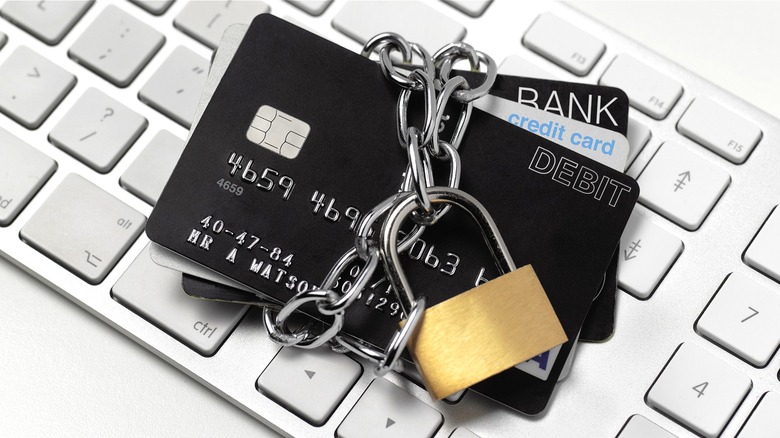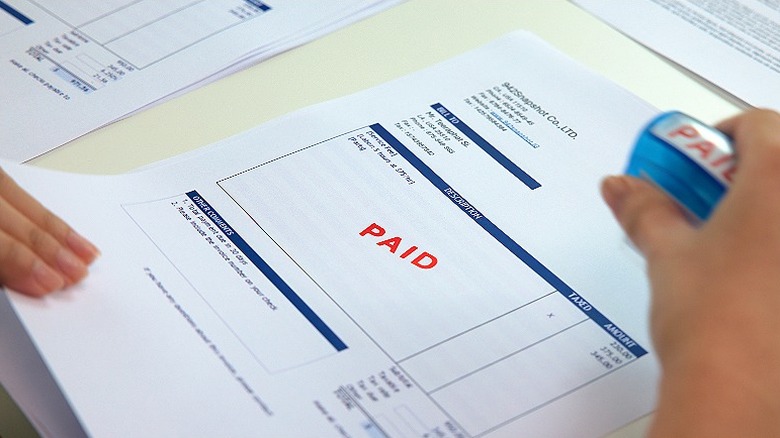Data Reveals Credit Card Debt Is Exploding. Here's How To Inch Your Way Out
Inflation has taken its toll on the average American. With consumer prices up 21.4% since February 2020 (according to a Bankrate analysis of Bureau of Labor Statistics data), home prices up 54% since 2019 (according to the Washington Post), and new vehicle prices up 19.6% compared to January 2021 (according to Texas A&M's Private Enterprise Research Center), people are financially struggling. All of these expenses, without a corresponding rise in pay for most people, has left many barely holding on. Even worse, more and more people are instead racking up credit card debt as they attempt to pay for the same things they used to be able to afford. As Americans increasingly rely on credit cards to make their monthly expenses, their growing debts get harder and harder to get out of (much like the U.S. national debt, which hit $35 trillion in 2024).
According to new data from the Federal Reserve Bank of New York, total U.S. household debt reached $17.94 trillion in the third quarter of 2024 (an increase of $147 billion). Within that debt, consumer credit card balances grew by $24 billion to hit $1.7 trillion. This represents 8.1% more credit card debt than the same time in 2023. Even more troubling is that 8.8% of these credit card balances transitioned into delinquency. While the rate of credit card delinquency was slightly lower than the year before, both mortgage and auto loan delinquency rates increased. Let's dive into ways to help manage your debt, and how to best handle credit card debt in particular.
Strategies to manage debt
As credit card debt increases across the country, it can be especially important to learn budgeting and savings strategies to help get yourself out of debt. For starters, remembering that it might take you longer than you'd like to get out of debt can be an important realization. The key to managing debt in a healthy way is not to overemphasize your past debts over your daily financial needs. Even if you're only able to save or pay off a small amount every month, the main thing is to be making progress, not racing to the finish line at the expense of your current finances. With that in mind, it can absolutely be worth paying more than the minimum balance on your credit card every month, provided you are able to.
The best way to get started on tackling your credit card debt is to find a payment strategy that works for you. Whether that means switching to automatic payments or trying out different repayment strategies (including what order you should pay back your different debts), ensuring you create a plan of attack can help you not only feel more in control of your debt, but help you accomplish your repayment goals sooner. Next, you might already have more money than you think hidden in your expenses. Creating and implementing a budget (whether by hand or by using a budget app) can help you better assess your current expenses, and identify areas where you could cut spending in favor of your debt repayment.
Other things to consider
If you find yourself under too much debt to get out of, and you feel you need more help than a repayment or budget strategy can provide, there are options you can consider. For starters, debt consolidation could be a good option, especially if you find you have debts across multiple creditors. However, there are some important things to keep in mind before you decide to consolidate your debt. Similarly, debt settlement might also be an option (but it's important to realize how settlement can affect your credit score). As always, it's important to research your options before moving forward with any specific strategy.
Other options can also include transferring your credit card debt balance to another credit card. While this might sound like a bad idea given you already have too much credit card debt, finding a card that offers a 0% balance transfer for an extended period of time (at least a year) could allow you to move the debt over so you can avoid unnecessary interest payments on your current card. Similarly, this could save you from the possibility of delinquency while giving you time to get your finances under control.
If you don't want to pursue additional credit cards, researching the options for a personal loan (with a lower APR than your existing credit cards) or even directly contacting your credit card company could be helpful options. For long-term customers, you might find your card issuer is willing to negotiate payment terms or even offer certain hardship exceptions.


